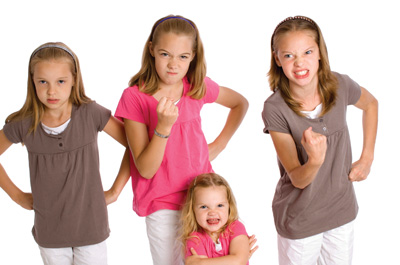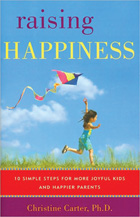 Quadruple X
Quadruple X
A study by U.K. parenting website bounty.com found that families are happiest with two daughters, but a household with four girls in it is too much of a good thing. The study ranked kid combos from 1–12, with four girls coming in dead last (although four boys came in at number 6). Why would parents perceive four girls to be that much harder than four boys, with their reputation for noisiness and rough play? It’s not the sheer number of children, but the “drama.” According to the study, two girls don’t antagonize each other, but four girls do. Read more about this fascinating study at parentmap.com/more.
 Cavity search
Cavity search
Here’s another one for the “eww!” file. Get ready for this: Parents pass the bacteria that cause cavities — primarily Streptococcus mutans and Streptococcus sobrinus — to their kids. (Think of all the saliva swapping that goes on, unwittingly or not, between parents and young children.) Researchers at the University of Brisbane found that more than 80 percent of 24-month-olds studied had been infected with cavity-causing bacteria and concluded that, because the risk of getting cavities correlates with the age kids are first infected, “Strategies for the prevention of dental caries should include timely control of colonization of the cariogenic bacteria in the mouths of young children.” In other words, brushing counts — even when kids are very small.
 Happy days
Happy days
Can parents help their kids learn how to be happy? Yup. Join Christine Carter, Ph.D., author of Raising Happiness: 10 Simple Steps for More Joyful Kids and Happier Parents, for a discussion on the 10 things we can do to help our kids achieve greater happiness. (“Eat more candy” is not on the list.) Carter draws on the latest research to pinpoint the ways parents can help kids develop happiness-boosters such as optimism and emotional intelligence. May 10, 7–9 p.m. at Seattle Children’s Theatre, Seattle. $20, tickets: parentmap.com/lectures
Boys and babies
When we think of teen pregnancy, we think of possible bad outcomes for the mother. But a study in Economic Inquiry shows that becoming a teen dad can also negatively affect young men, reducing their high school graduation rates and increasing the likelihood of early marriage or cohabitation. Interestingly, the study found that teens who practiced birth control before the birth “face smaller consequences” than teens who don’t. Better sex ed. and access to birth control for young people, anyone?
—Kris Collingridge


